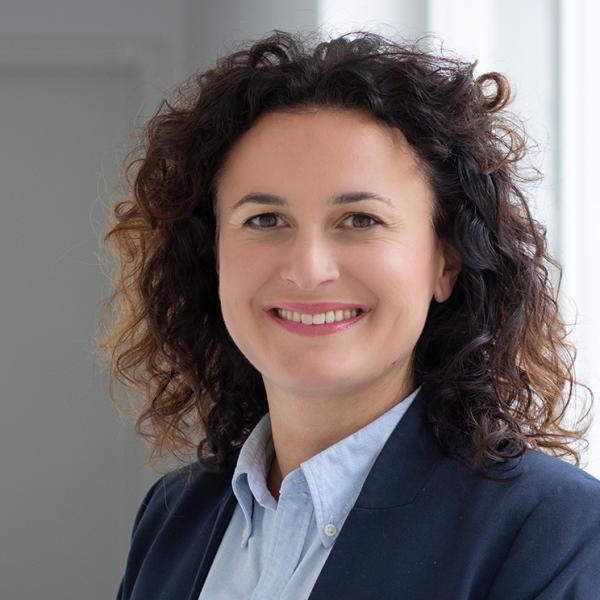ifo Media Center
The ifo Institute invites you to participate in the discussion of interesting economic topics via the Internet. In our ifo Media Center a whole series of remarkable events are available and can be viewed in full length. We also record selected speeches and presentations given by employees or at events and make them available in our Media Center.

Ernst Erwin Glöckner
Junior Economist and Doctoral Student
ifo Business Climate Saxony Plummets (March 2022)
The ifo Business Climate Index Saxony plummeted in March. The barometer of business sentiment in Saxony’s economy plunged from 101.7 to 92.8 points. Companies’ assessments of their current situation and expectations for the coming six months both fell drastically, with the decline in the latter even more pronounced. While the decline in the current situation was less severe than at the beginning of the coronavirus crisis, the decline in expectations was just as severe as it had been then. Saxony’s business community fears that the war in Ukraine will have a noticeable economic impact.
Annette von Maltzan
Survey Assistant
ifo Business Climate Eastern Germany Plummets (March 2022)
Sentiment among companies in eastern Germany has worsened considerably since the outbreak of war in Ukraine. The ifo Business Climate Index for the entire regional economy plunged from 99.9 to 93.2 points. This drop was due mainly to the drastic decline in business expectations across all economic sectors. Assessments of the current situation also dipped, though not as massively as expectations.
ifo Employment Barometer Tumbles (March 2022)
The willingness among companies in Germany to hire new staff has taken a knock. The ifo Employment Barometer fell to 102.1 points in March, down from 104.3 points in February. This is its lowest level since May 2021. The current high level of uncertainty in the economy due to Russia’s attack on Ukraine is making companies more cautious when it comes to personnel planning. However, there are no signs of an increase in unemployment at this time.
ifo Export Expectations Slump (March 2022)
Sentiment among German exporters has slumped dramatically due to the war in Ukraine. The ifo Export Expectations slipped to minus 2.3 points, down from 17.0 points in February. To date, the only other time the index suffered a steeper decline was at the beginning of the coronavirus crisis in April 2020 (minus 31.2 points). When considering the coming six months, companies were significantly more pessimistic, especially those with economic ties to Russia. The growth in exports will slow down noticeably.
War in Ukraine Causes ifo Business Climate Index to Plummet (March 2022)
Sentiment in the German economy has collapsed. The ifo Business Climate Index nosedived to 90.8 points in March, down from 98.5 points in February. This was due to a record collapse in expectations of 13.3 points, which is even more than it fell at the outbreak of the coronavirus crisis in March 2020 (11.8 points). Businesses also assessed their current situation as worse, but the fall here was comparatively moderate (1.6 points). Companies in Germany are expecting tough times.
Economic Experts Survey: Political Climate Deteriorating Worldwide (Q1 2022)
The global economic situation remained tense in Q1 2022. The coronavirus pandemic regained momentum in many countries through the Omicron variant and led to significant restrictions on economic activity. The geopolitical break caused by the Russian invasion of Ukraine on February 24, 2022, is also affecting the global political and economic climate. The Economic Experts Survey (EES), a quarterly survey conducted by the ifo Institute and the Swiss Economic Policy Institute, captures the assessments of international economics experts on the current economic policy and the political climate. 1,603 economic experts from 132 countries participated in the survey, which ran from February 16, 2022, to March 2, 2022.
ifo Economic Forecast Spring 2022: Consequences of the Russian-Ukrainian War Slow the German Economy
To take account of the imponderables regarding the further course of the Russian-Ukrainian war, two scenarios were considered for the forecast. The base scenario assumes only a temporary increase in raw material prices, supply bottlenecks, and uncertainty. In the alternative scenario, the situation initially worsens before gradually easing from mid-year. Under these assumptions, GDP is expected to grow by only 3.1 percent (base scenario) and 2.2 percent (alternative scenario) this year, noticeably less than previously expected (3.7 percent). In the coming year, growth is then expected to be 3.3 percent (base scenario) and 3.9 percent (alternative scenario).
Higher Inflation Rate for Germany in the Longer Term
The inflation rates in Germany and the euro area, which are currently well above the inflation target set by the European Central Bank (ECB), are dominating the current monetary policy debate. There are increasing signs that the higher inflation will last longer than originally expected by most economists and members of the central banks.
ifo Business Climate Saxony Rises Further (February 2022)
The ifo Business Climate Index Saxony continued to climb in February. The barometer of business sentiment in Saxony’s economy rose from 100.5 to 101.7 points. This is the second consecutive improvement in the index. The main reason for this was a sharp improvement in assessments of the current situation. Business expectations for the coming six months were slightly lower.
Patrick Höppner
Specialist
ifo Business Climate Eastern Germany Jumps Upward (February 2022)
Sentiment among companies in eastern Germany continued improve in February. The ifo Business Climate Index for the entire regional economy jumped to 100.5 points, up from 97.1 points in January. Survey participants reported a strong improvement in their assessments of the situation. At the same time, they raised their expectations considerably compared to the previous month. This positive development was driven primarily by trade and the service sector, which seem to see light at the end of the tunnel. However, the survey was completed before the Ukraine crisis came to a head.
ifo Employment Barometer Rises (February 2022)
Companies in Germany have become much more willing to hire new staff. The ifo Employment Barometer rose to 104.3 points in February, up from 102.5 points in January. Hopes for an end to the pandemic spurred companies staffing plans.
ifo Export Expectations Virtually Unchanged (February 2022)
Sentiment among German exporters was bright in February. The ifo Export Expectations slipped to 17.6 points, down from 17.7 points in January. The export industry expected further growth. Current developments in Ukraine could, however, lead to an increase in uncertainty, which in turn could affect trade flows.
ifo Business Climate Index Rises Despite Ukraine Crisis (February 2022)
Sentiment in the German economy has improved appreciably. The ifo Business Climate Index rose to 98.9 points in February, up from 96.0 points (seasonally adjusted) in January. Companies were more satisfied with their current business. There was a marked improvement in expectations. The German economy is betting on an end to the coronavirus crisis. However, the escalation of the crisis engulfing Ukraine remains a risk factor.
ifo Business Climate Saxony Rises (January 2022)
The ifo Business Climate Index Saxony rose in January. The barometer of business sentiment in Saxony’s economy rose from 97.0 to 100.5 points, bringing the downward trend of recent months to an end for the time being. This rise was due mainly to a major improvement in companies’ business expectations. The survey participants’ assessments of their current situation also improved slightly.
ifo Business Climate Eastern Germany: Expectations Improved (January 2022)
Sentiment among companies in eastern Germany improved slightly in January. The downward trend that has persisted since last summer appears to have halted for the time being. The ifo Business Climate Index for the entire regional economy rose to 97.0 points, up from 96.1 points in December. Participating companies reported a marked decline in their assessments of the current situation. At the same time, they raised their expectations substantially compared to the previous month. This development was driven by manufacturing and the service sector.
ifo Employment Barometer Drops (January 2022)
German companies are less willing to hire new staff. The ifo Employment Barometer fell to 102.4 points in January, down from 102.9 points in December. Companies in hospitality and event organizers in particular are planning to reduce, not expand, their headcount.
ifo Export Expectations Rise (January 2022)
Sentiment among German exporters has turned considerably brighter at the beginning of the year. The ifo Export Expectations rose to 17.4 points in January, up from 12.9 points in December. German manufacturing is starting the year in a hopeful mood.




